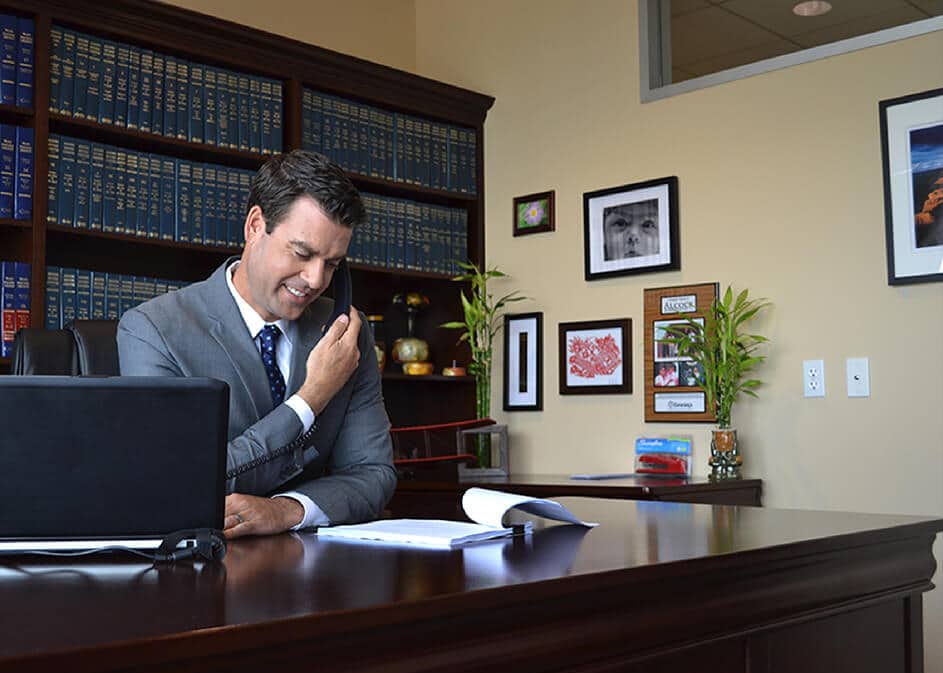If a domestic violation is proven with an underlying offense conviction, there are mandatory minimum additional penalties. To prove a domestic violence allegation, the person designated as the victim must provide testimony in court to prove the allegation via first-hand knowledge.
The State can also attempt other ways to prove a domestic violence allegation, but a skilled defense attorney can object to hearsay or other inadmissible evidence if such an objection applies under the circumstances. However, in some domestic violence cases, the alleged victim may be reluctant to prosecute their loved one. This can pose a challenge for the State if their key witness is unwilling to cooperate and testify against the accused.
It is quite common in Arizona to be charged with a domestic violence offense. Sometimes simple arguments that escalate into yelling may lead to criminal DV charges. In many cases, neither the suspect nor the victim desire prosecution, even when cases are reported. But once the State is called to investigate a family fight, it is highly likely that they may arrest or file charges against the person involved.
DOMESTIC VIOLENCE PENALTIES
The penalties for domestic violence vary based on the underlying crime. For example, if someone commits a misdemeanor assault against their spouse, he could be charged with DV-Assault.
COMMON PENALTIES FOR DOMESTIC VIOLENCE INCLUDE:
- Additional jail or prison time
- Restraining orders
- Additional fines and fees
- Surrender of firearms
- Loss of the right to bear arms
HOW MUCH JAIL TIME CAN YOU GET FOR DOMESTIC VIOLENCE IN ARIZONA?
Whenever there is a domestic violence issue at stake, one of the most frequent questions that we are asked is, “How much jail time am I looking at?”
For whatever reason, many people come to us with the idea that they are legitimately facing the maximum sentence for their charges. Lawyers can have a tendency to freak people out. This is especially the case when a person is facing the criminal justice system for the first time.
Domestic violence charges in Arizona are typically filed as class 1 misdemeanors. Most individuals charged with first-offense misdemeanors do not face significant jail time. For example, anyone charged with a class 1 misdemeanor technically is facing up to six months in jail. A reasonable person could meet with an attorney and walk away from that consultation, thinking that six months is a realistic sentence for a domestic violence offense.
The reality of the situation, however, is that counseling and non-jail programs are available for many first-time offenders. Individuals facing significant jail time either have prior convictions, are accused of causing serious injury, or were charged with using a dangerous weapon in Arizona. So, if you are going to court for the first time and no other factors make your case more serious (use of gun, knife or allegation of broken bones/choking/etc.), then non-jail programs are a likely option for you.
Of course, as a domestic violence attorney in Phoenix, we must inform you and caution you that every case is different and depends on the circumstances and the facts of the case. Ten identical cases in ten different courtrooms would result in ten different outcomes. However, if an attorney tells you you should hire them because you’re facing significant jail time, it’s important to keep a level head and not panic. Ask them, “How many people have you ever seen sentenced to six months for my charges?” The answer will probably be “zero.”
At Alcock & Associates, we have a distinct advantage over other law firms due to our team’s diverse experience. Our team includes former prosecutors, a former police officer, and a former administrative law judge. With decades of combined experience, we have handled thousands of domestic violence cases and have gained valuable insight into the legal system. We understand the severity of domestic violence charges and provide our clients with honest and straightforward advice.
If you are facing domestic violence charges in Arizona and have a court date coming up, we invite you to schedule a consultation with us. We will provide detailed strategies to navigate and potentially win your case. Our goal is to help you minimize the impact of these charges on your life and ensure that your rights are protected throughout the legal process.
Child Abuse
Alcock & Associates offers legal support for parents and caregivers who have been accused by the State of causing harm to a child in their care. We know that unforeseen circumstances and accidents happen, and we recognize the importance of protecting the rights of parents and caregivers. If you are facing allegations of child abuse, having a skilled advocate who will fight for your rights and provide sound legal guidance is crucial.
Arizona person can be accused of Child Abuse under the following circumstances:
A. Under circumstances likely to produce death or serious physical injury, any person who causes a child or vulnerable adult to suffer physical injury or, having the care or custody of a child or vulnerable adult, who causes or permits the person or health of the child or vulnerable adult to be injured or who causes or permits a child or vulnerable adult to be placed in a situation where the person or health of the child or vulnerable adult is endangered is guilty of an offense as follows:
- If done intentionally or knowingly, the offense is a class 2 felony, and if the victim is under fifteen years of age, it is punishable pursuant to section 13-705.
- If done recklessly, the offense is a class 3 felony.
- If done with criminal negligence, the offense is a class 4 felony.
B. Under circumstances other than those likely to produce death or serious physical injury to a child or vulnerable adult, any person who causes a child or vulnerable adult to suffer physical injury or abuse or having the care or custody of a child or vulnerable adult, who causes or permits the person or health of the child or vulnerable adult to be injured or who causes or permits a child or vulnerable adult to be placed in a situation where the person or health of the child or vulnerable adult is endangered is guilty of an offense as follows:
- If done intentionally or knowingly, the offense is a class 4 felony.
- If done recklessly, the offense is a class 5 felony.
- If done with criminal negligence, the offense is a class 6 felony.
A common scenario leading to a child abuse charge against a parent or caregiver is as follows: A busy parent with three young children is driving to the supermarket. The baby falls asleep in the car seat while the two and five-year-old children cry and demand attention. The parent gets out of the car to take care of the children and forgets the sleeping baby in the car seat. After entering the store for about five minutes, the parents realized they left the baby in the vehicle and returned to the car. However, during that time, a bystander called the police, who arrived just as the parent returned to check on the baby. Although the baby is unharmed and removed from the car, the parent is arrested and charged with child abuse.
Another common scenario involves the discipline of children. Parents or caregivers may choose to administer discipline, which sometimes includes spanking or other forms of corporal punishment. But is spanking legally allowed in Arizona? The answer is yes. According to ARS 13-403, “a parent or guardian and a teacher or other person entrusted with the care and supervision of a minor or incompetent person may use reasonable and appropriate physical force upon the minor or incompetent person when and to the extent reasonably necessary and appropriate to maintain discipline.”
However, even with this legal provision, misunderstandings can happen. Sometimes, teachers, school administrators, daycare providers, and other well-meaning individuals mistake lawful discipline for child abuse and report it to the police. As a result, felony child abuse charges are filed against the parent or caregiver.
A third and very common scenario arises during divorce proceedings. Both parents are fighting for custody of a young child. One of the parents calls DC, formally known as CPS, and accuses the other parent of physically abusing their common child. Although the accused parent denies the accusations, charges are filed against the parent.
If you find yourself in these circumstances, you need an aggressive, experienced criminal law attorney who will fight for you. Our domestic violence defense attorneys at Alcock & Associates are here to help you navigate the complex legal system, protect your rights, and defend you against accusations made by the state.
When faced with a domestic violence charge, it is important to have an attorney who understands how the legal system works and how the family dynamic functions. Many of our attorneys are parents themselves. We will fight for you, and we will fight for your family.
WE KNOW HOW TO WIN DOMESTIC VIOLENCE CASES
Being charged with domestic violence can have serious consequences, both legally and personally. Unfortunately, many innocent people are wrongly accused of domestic violence. Police officers often make an arrest based on incomplete or biased information, and they may arrest first and ask questions later. It is also obvious that there is a preference to arrest men over women.
In many cases, the arrest is based solely on the testimony of one witness, without hearing both sides of the story. This can be incredibly unfair and result in innocent individuals facing serious criminal charges.
At Alcock & Associates, we believe that everyone is entitled to a fair trial and a strong defense. We will work tirelessly to investigate the facts of your domestic violence case and build a strong defense strategy to protect your rights and your reputation. We understand that your future is at stake, and we will do everything in our power to achieve the best possible outcome for your case.
Don’t hesitate to contact us if you have been charged with a domestic violence offense. Our goal is to win your case and help you get your life back on track. Call us today, and let us develop constructive strategies to defend your rights and preserve your freedom.
















